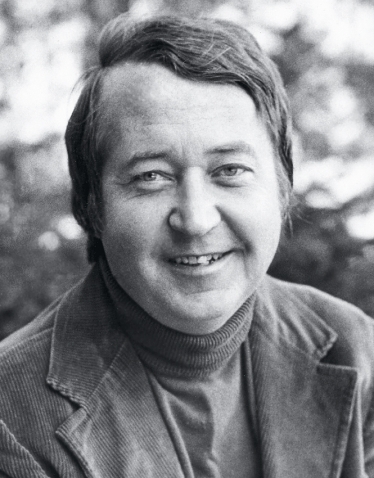Roger A. Johnson, Elisabeth Luce Moore Professor of Religion emeritus, died suddenly on July 27, in Portland, Maine. He was 84.
A graduate of Northwestern (B.A.), Yale Divinity School (B.D.), and Harvard (Th.D.), Roger was a versatile scholar, beloved mentor, and visionary architect of the religion department at Wellesley. During his more than four decades at the College beginning in 1959, Roger was primarily known as the perennial leader of the department, but he was also a distinguished and wide-ranging interpreter of the Christian tradition.
He published six scholarly books, beginning with The Origins of Demythologizing (1974), a study of the controversial biblical theologian Rudolf Bultmann. Turning to the field of religion and psychology, he engaged the work of Erik Erikson in Religion and Psychohistory: The Case of Young Man Luther (1977). His sociological interests produced Congregations as Nurturing Communities (1979), published by the Lutheran Church in America, of which he was an ordained member, and Views from the Pews: Christian Beliefs and Social Attitudes (1983). In 1987, he returned to Bultmann with Rudolf Bultmann: Interpreting Faith for the Modern Era. Late in his career, and in retirement, Roger was deeply engaged with the problem of war and peace in Christian thought. This concern produced his last book, Peacemaking and Religious Violence: From Thomas Aquinas to Thomas Jefferson (2009), in the Princeton Theological Monograph Series.
He was also an active contributor to meetings of the American Academy of Religion, and a principal member of the New Haven Theological Discussion Group, a highly influential gathering of prominent theologians from all over the Northeast.
Roger was also a brilliant and innovative teacher. When the College eliminated its traditional Bible requirement in 1968, he led a group of young colleagues in developing a collaborative introductory course called Crises of Belief in Modern Religion, which became a staple in the department and a widely admired and imitated model at other schools. In 1973, Prentiss-Hall published the course readings with faculty commentaries, edited by Roger, as Critical Issues in Modern Religion. The nationwide success of the course model earned a second edition of the textbook in 1990, and it is still in print.
Beth Bernatowicz ’88, a dancer and teacher of theology, took this signature course as a first-year student. It “set the trajectory of my life,” she writes. “Roger set out for us an intellectual buffet of the ideas that crystallized the conflict when the world of traditional belief ran into modern, critical thought.”
“Meeting great ideas is transformative,” she continues, “[and] meeting Roger was transformative, too. He was a scholar-pastor with tremendous patience for his young adult students who were wrestling with the implications of their studies. … I am not sure whether schools and colleges care, or even know, about the deep personal growth that occurs when human beings, at any point in their lifespan, confront real ideas that matter. Roger knew. Roger cared. And he facilitated that transformation.”
His vision for the Department of Religion was transformative, too. When the department was radically downsized in the mid-1970s, Roger, who had spent a 1968–69 sabbatical at Chung Chi College in Hong Kong, single-handedly redesigned the department as a world religions faculty. This far-sighted move was virtually unprecedented at the time among elite liberal-arts colleges. To fulfill this agenda, Roger recruited all five of the current senior faculty members in the department and saw them through the tenure process. In 1988, he capped his service to the department by negotiating the Elisabeth Luce Moore ’24 Chair in Religion, of which he was the first incumbent, and a generous endowment for the study of world religions from the same donor.
As a mentor, Roger was helpful, generous, and supportive, but he was also unblinking in reporting and enforcing the rules of the tenure game. This combination of compassion and realism gets to the heart of who Roger Johnson was as a colleague and a friend. His warmth and humane insight always came blended with existential honesty and critical candor. He transformed our department and its faculty, along with generations of students. He was indispensible and irreplaceable for us all. Now we grieve and go on.





We ask that those who engage in Wellesley magazine's online community act with honesty, integrity, and respect. (Remember the honor code, alums?) We reserve the right to remove comments by impersonators or comments that are not civil and relevant to the subject at hand. By posting here, you are permitting Wellesley magazine to edit and republish your comment in all media. Please remember that all posts are public.